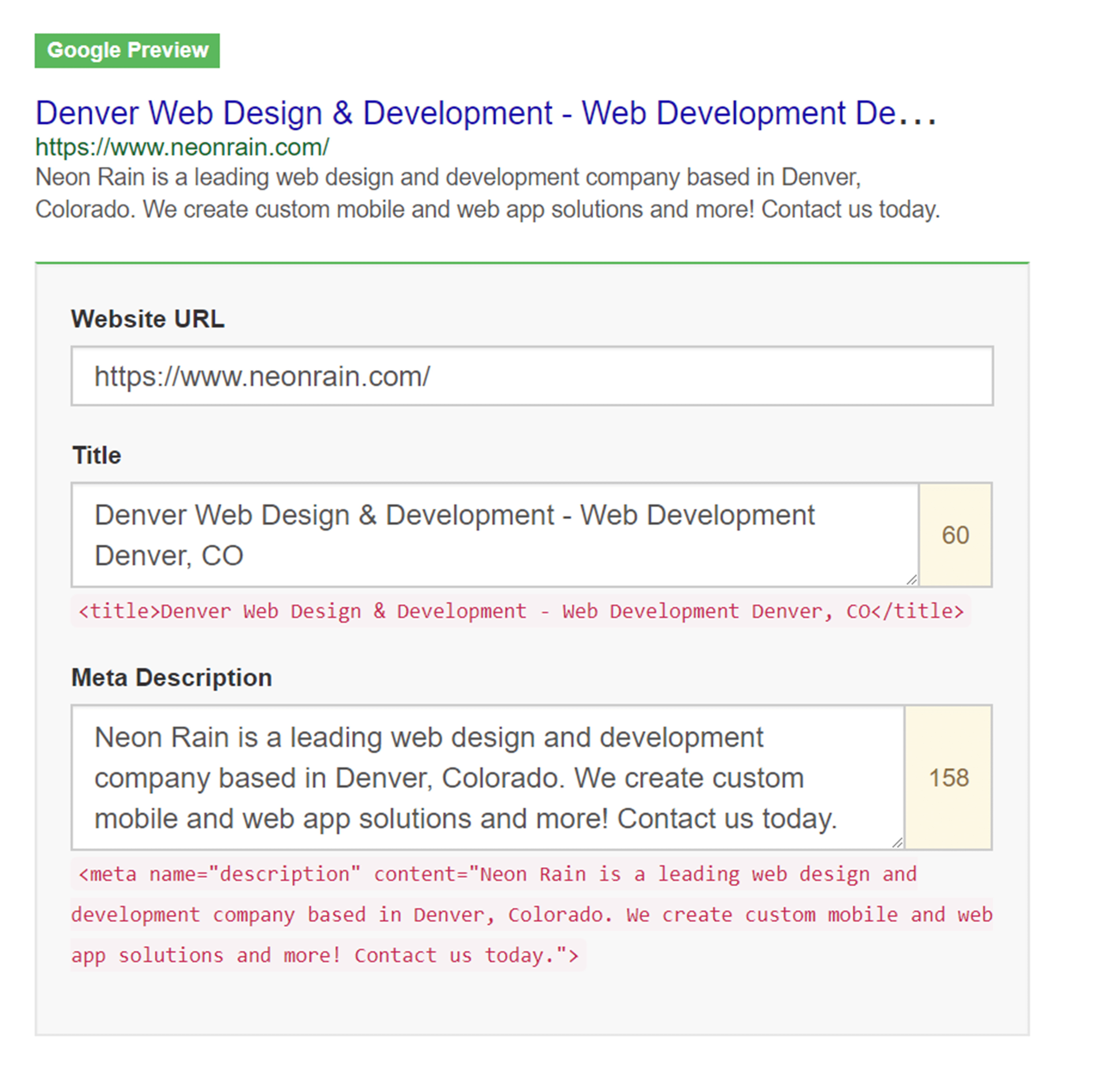Having a good website is one of the key ingredients necessary to the success of a business. In our increasingly technological society, your business website is the face of your company; it is the portal through which customers are able to access and hopefully purchase your products. A poorly designed website can detract customers from your business and result in negative financial consequences.
When designing your business’s website, you also need to consider your website rank on search engine result pages. Websites that are highly ranked tend to have increased search traffic which could potentially translate into an increased number of customers. Adhering to good search engine optimization (SEO) practices during your website's design can help its ranking on a search engine. One SEO practice that has an effect on a website's ranking is the use of meta descriptions; meta descriptions have an indirect but significant effect on how a website is ranked on a search engine page.
What are meta descriptions?
A meta description is an HTML attribute containing a short paragraph that describes the content of a webpage. When a query is entered into a search engine, the accompanying meta description can help the user decide which of the displayed links are most relevant to the search query. Links with meta descriptions that are related to the search query are more likely to be selected than those that have little or no bearing to the user's query.
The meta description attribute is typically placed within the header portion of the HTML script, together with the title and the keywords attribute. Meta descriptions can be of varying lengths, though they should be optimally kept to less than 300 characters. Very long meta descriptions run the risk of being truncated and are therefore not fully displayed on the search engine results page.

Do meta descriptions help with rankings on SERPs?
There is no direct correlation between a web page's meta description and its SERP rank. The meta description attribute is not one of the algorithms used by search engines to determine how a webpage is ranked. However, the click-through-rate (CTR), a measure of how often a search result is clicked, is one of the algorithms used by search engines; sites with high CTR are ranked higher than those with low CTR. A factor that influences a webpage's CTR is its meta description; people are more likely to click on a search result if its accompanying meta description is relevant to the search query. Therefore, the meta description attribute has an indirect impact on a webpage's SERP rank.
How to write a good meta description
Since your business's meta description can influence its ranking, it is important to put a lot of consideration into how it is written. Some pointers to writing a good meta description include:
- Uniqueness: Each webpage should have its own unique meta description; it should not be duplicated from another page. This ensures that each search result is distinct and does not confuse your potential customer.
- Content match: The content of your meta description should match the content of your webpage. You should not write a meta description that is misleading and has no bearing to the page content; this action may be penalized by some search engines.
- Focus keywords: Keywords should be used as much as possible in your meta description. This increases the likelihood of the page link being clicked.
- Brevity: Your meta description should be as brief and succinct as possible. Also, it should be written with an active voice and not a passive one.
At Neon Rain, we are a web design company that develops and designs SEO friendly websites. In business since 2002, we have years of experience building websites that are tailored to meet your individual and unique business needs. Contact us today for more information about how we can best serve you.
